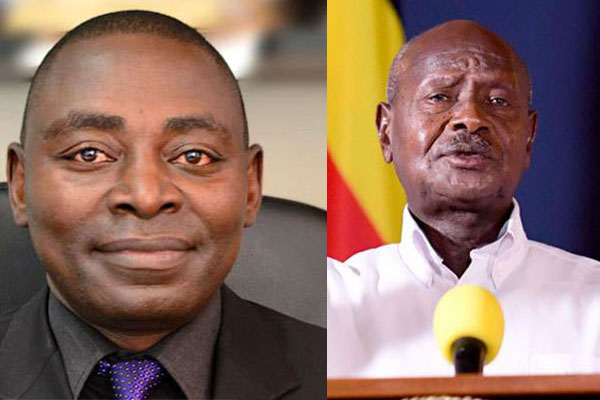Address teachers’ salary concerns

Emilly Comfort Maractho
What you need to know:
- The reasoning that the increment was for scientists, not teachers but benefiting teachers who teach science is one of a conceptual misinterpretation and confusion. In concept formation we talk about stretching of concepts.
I am not sure anyone is surprised that the ‘other teachers’, the ones not deserving of pay rise have gone on strike. And that ‘science teachers’ alone cannot keep children in school is also clear. This position on pay differentials for teachers is always going to be problematic. It did not need a lot of thinking to see how misplaced it was in the first place.
At the time, I remember writing in this column, pleading with the powers that be to rethink the proposal to increase pay for science teachers. I even went ahead to propose several ways to promote science, incentivise and motivate the teachers who teach science but also look more broadly at improving the teaching and learning environment for sciences in order to support our vision 2040 for innovation. Performance in science would improve.
There were people who responded to the article, confirming what a terrible idea this whole pay differential was. But one reader took exception, supporting the idea. The reader argued that, the current discussion was not about teachers. That the discussion on teachers’ pay had happened in 2018 and the teachers, both groups had lost due to issues within Unatu and their insider allies. The reader took further exception, classifying these teachers’ as scientists, not teachers, but only happen to teach science.
The reader reminded me, that ‘the government was considering increasing salaries for scientists (not teachers please), in all sectors. It is fortunate that among the teachers, there are scientists too’.
The reasoning that the increment was for scientists, not teachers but benefiting teachers who teach science is one of a conceptual misinterpretation and confusion. In concept formation we talk about stretching of concepts.
In this case, the ladder of generalities has been stretched to the point of blindness. For instance, the reader further went on to say that, if salary increment was to be considered for teachers, science teachers must also benefit equally with the teachers. So within the school you have scientists and you have teachers.
We may wish to ask ourselves first, who is a teacher? and, who is a scientist?
A teacher, according to IGI Global, is a person who helps others to learn. In this context, it is used to refer to a person who facilitates learning, including in higher education institutions. Or, a professional whose job is to teach and guide learning, including the higher education institutions.
And who is a scientist? According to the science council, ‘a scientist is someone who systematically gathers and uses research and evidence to make hypotheses and test them, to gain and share understanding and knowledge’ and this includes science teachers, of course.
The problem we find ourselves in is not so much on whether teachers who teach science are scientists or not, but that in this country, teaching is a profession, and those who undergo training as teachers, do the exact same training, are admitted on the same programme, study the same number of years for whatever level or grade, and join the teaching profession as teachers and not artists or scientists although subjects they studied might vary. Their degree will generally read, a degree in education with the specific subjects named. We may wish to see their appointment letters, if they are teachers or scientists.
It can, therefore, be safely argued, that regardless of the subjects they teach, they are teachers, unless they return to school and study the specific area of science they teach and get employed as that professional and not a teacher.
Pay discrimination is an emotive thing. It is bound to create various levels of problems that at the moment we are not even talking about. The other challenge is the nature of the gap that it creates-a very wide pay gap.
There are two ways out of this for now. Either match the salary of teachers and this becomes the proverbial lucky day for arts teachers too, or rethink the whole structure of pay rise. If some serious thought had been given to this, and a fair increment for teachers made without creating this ruckus, we would have averted this strike.
All teachers deserve a fair pay. That is why an initial increment did not need to leave out a section of them. Not motivating teachers in the lower levels is now manifesting in the quality of students at higher institutions of learning. This may worsen an already bad situation. There should be measured steps to ensure the principle of fairness is achieved.
Ms Maractho (PhD) is the director of Africa Policy Centre and senior lecturer at Uganda Christian University. [email protected]




